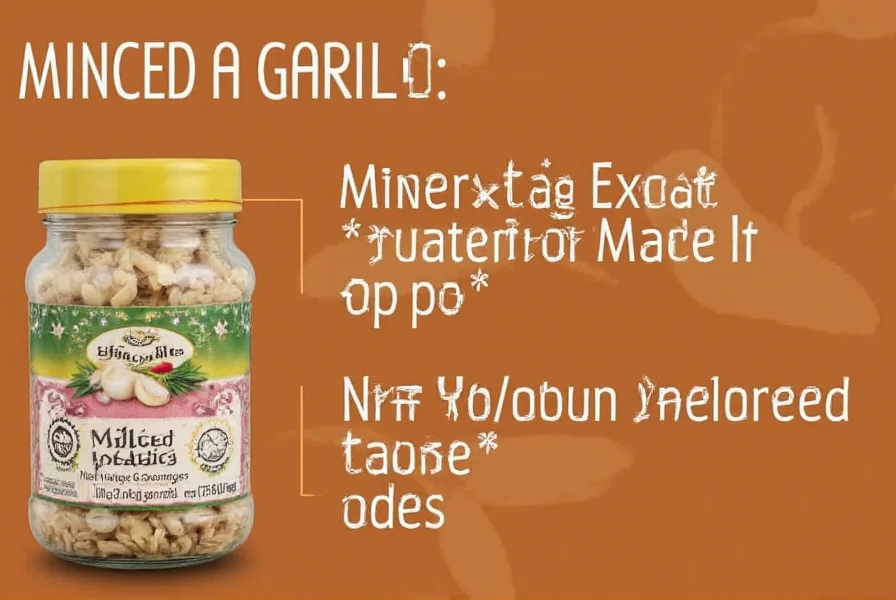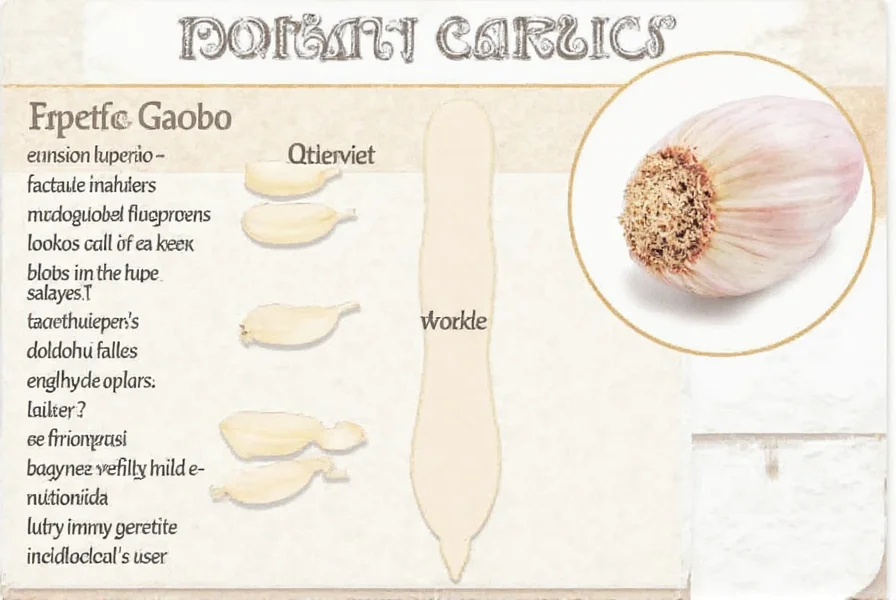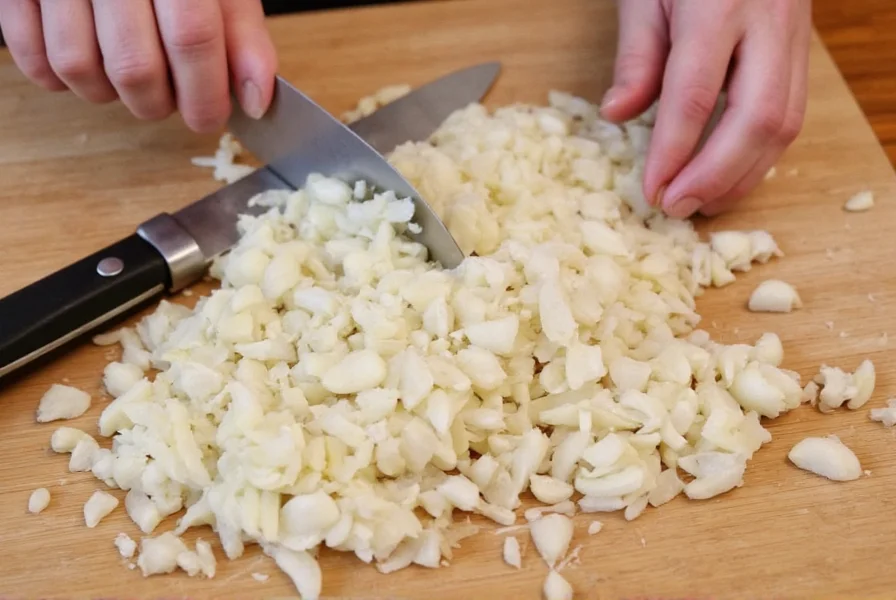Understanding Garlic Measurements for Perfect Cooking Results
Getting garlic measurements right can make or break your dish. When recipes call for "1 clove of garlic, minced," understanding the precise minced garlic per clove conversion ensures consistent flavor without overpowering your meal. This guide provides accurate measurements, practical tips, and helpful conversions for both home cooks and culinary professionals.
Garlic Clove to Minced Measurement Conversion Chart
| Garlic Size | Whole Clove | Minced Garlic | Garlic Powder |
|---|---|---|---|
| Small (3/4" long) | 1 clove | 1/4 tsp | 1/8 tsp |
| Medium (1" long) | 1 clove | 1/2 tsp | 1/4 tsp |
| Large (1 1/4" long) | 1 clove | 3/4 tsp | 3/8 tsp |
| Jumbo (1 1/2" long) | 1 clove | 1 tsp | 1/2 tsp |
Factors Affecting Minced Garlic Measurements
The exact minced garlic per clove measurement varies based on several factors that home cooks should consider:
Garlic Size Variability
Garlic cloves range dramatically in size depending on the variety and growing conditions. A single head of garlic typically contains cloves of different sizes. When precision matters for delicate dishes, sort your cloves by size before mincing.
Mincing Technique Matters
How you prepare your garlic affects the final volume:
- Knife-minced: Yields the most consistent 1⁄2 teaspoon per medium clove
- Garlic press: Produces slightly more compact minced garlic (about 20% less volume)
- Food processor: Creates coarser mince that may settle differently

Fresh Minced Garlic vs. Pre-Minced: What You Need to Know
While fresh garlic always provides superior flavor, understanding the differences between fresh and jarred minced garlic helps when substitutions are necessary:
Flavor Comparison
Freshly minced garlic delivers a brighter, more complex flavor profile with subtle sweet notes that develop during cooking. Pre-minced garlic from jars often contains preservatives that create a sharper, one-dimensional taste. For most culinary applications, fresh garlic remains the preferred choice when available.
Measurement Adjustments
When substituting jarred minced garlic for fresh:
- Use 1⁄2 teaspoon jarred minced garlic per medium fresh clove
- Reduce by 25% if the jarred product contains liquid or preservatives
- Add a pinch of sugar to balance any acidic notes from preservatives
Practical Applications in Recipe Development
Understanding minced garlic per clove measurements proves invaluable when scaling recipes or adapting international dishes:
Recipe Scaling Guidelines
When doubling or halving recipes, remember that garlic flavor compounds don't scale linearly. For best results:
- When doubling recipes: Increase garlic by 1.5x rather than 2x
- When halving recipes: Keep garlic at full amount for robust dishes
- For delicate sauces: Measure precisely using the 1⁄2 teaspoon per clove standard
International Recipe Adaptation
Many European recipes specify "1 clove" while American cookbooks often use volume measurements. When converting between systems:
- "1 clove" in French or Italian recipes = 1⁄2 teaspoon minced garlic
- "1 head of garlic" typically contains 10-12 cloves (5-6 teaspoons minced)
- "Garlic to taste" usually means 1-2 cloves per serving
Storage Tips for Minced Garlic
Proper storage preserves garlic's flavor compounds and prevents spoilage:
- Fresh minced garlic keeps for 1-2 days in an airtight container in the refrigerator
- Freeze minced garlic in ice cube trays with olive oil for longer storage
- Never store minced garlic in oil at room temperature (botulism risk)
- Label frozen portions with date and minced garlic per clove equivalent

Common Questions About Garlic Measurements
Understanding these frequently asked questions helps home cooks achieve consistent results:
How much jarred minced garlic equals one fresh clove?
One medium fresh garlic clove equals approximately 1⁄2 teaspoon of jarred minced garlic. However, because jarred garlic often contains preservatives and has a stronger flavor, many chefs recommend using only 1⁄3 teaspoon of jarred product per fresh clove to achieve similar flavor intensity.
Can I substitute garlic powder for fresh minced garlic?
Yes, but with careful measurement. The general conversion is 1⁄8 teaspoon garlic powder equals one fresh garlic clove. Garlic powder has concentrated flavor, so start with less and adjust to taste. Remember that powder lacks the moisture content of fresh garlic, which affects recipe texture, particularly in sauces and dressings.
Why does my minced garlic measurement vary between recipes?
Garlic size varies significantly by season and variety, causing measurement inconsistencies. A single garlic head typically contains cloves of different sizes. Professional recipes often specify "medium" or "large" cloves to address this. For precision cooking, sort cloves by size before mincing and use the standardized 1⁄2 teaspoon per medium clove measurement as your baseline.
How do I measure minced garlic accurately?
For precise measurement of minced garlic per clove, use a proper measuring spoon rather than estimating. Pack the minced garlic lightly into the spoon without compressing it. Level off excess with a straight edge for accuracy. When working with small quantities (1⁄4 teaspoon or less), consider using a dedicated set of mini measuring spoons for better precision.
Does roasting garlic change the minced measurement?
Roasting garlic reduces its volume by approximately 25% due to moisture loss. One medium roasted garlic clove yields about 3⁄8 teaspoon of minced roasted garlic. The flavor becomes sweeter and milder, so you may need to increase the quantity slightly compared to raw garlic for equivalent flavor impact in your dishes.











 浙公网安备
33010002000092号
浙公网安备
33010002000092号 浙B2-20120091-4
浙B2-20120091-4